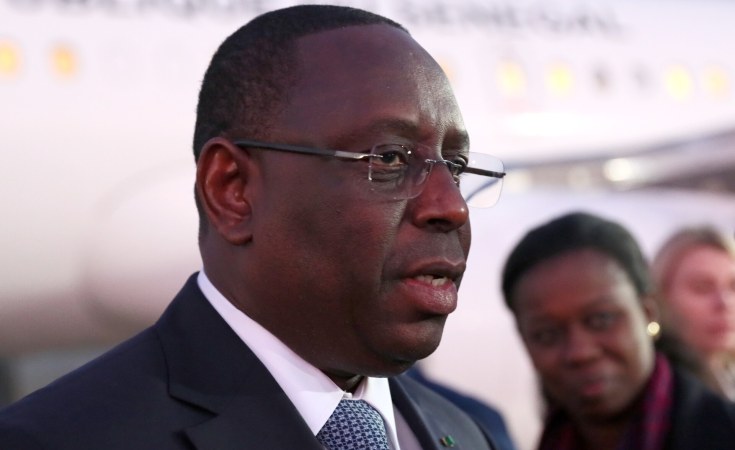Rwanda has appealed to the DR Congo to observe good neighborliness, own up to her problems, and avoid apportioning blame where none exists.
Dr Vincent Biruta, the Minister of Foreign Affairs, noted this Saturday, May 28, in Malabo, Equatorial Guinea, during an extraordinary Summit on countering terrorism and unconstitutional change of government in Africa.
While responding to the "baseless accusations" made by Kinshasa against Rwanda, the Minister said there are several initiatives in place to address the existing problems, but without political will, "we will remain in a vicious cycle of undesirable and destructive conflicts."
This comes after increased tension between the DR Congo army (FARDC) and M23 rebels near the Rwandan border, as well as the recent cross-border shelling on Rwandan territory.On May 23, rockets from the Congolese side of the border, injured several people in at least two sectors in Musanze district, in Rwanda. The Congolese army and the terrorist FDLR militia, according to Kigali, also kidnapped two Rwandan soldiers who were patrolling along the common border.
Kigali on Saturday requested DR Congo authorities to releasethe two Rwandan soldiers.
Even though Kigali has stressed that it has no intention of being drawn into an intra-Congolese matter, Kinshasa claims that the M23 rebels are supported by Kigali.
In Malabo, Dr Biruta stressed that for close to 30 years now, there has been consistent collaboration between the FARDC and the Rwandan FDLR armed group based in eastern DRCongo.
It is deplorable that the FDLR, "which harbors a long-term sinister plan to destabilize Rwanda," has been tolerated and preserved by the DR Congo, he said.
"Over the years, they have sanitized this genocidal armed group, to the extent that the FDLR are currently co-located, and fighting alongside the FARDC," Dr Biruta said.
"Rwanda wishes to reiterate that the FDLR and its various splinter groups pose a serious security threat, not only to Rwanda, but to the entire region."
The FDLR comprises remnants of the perpetrators of the 1994 Genocide against the Tutsi in Rwanda. After killing more than one million people 28 years ago, they fled into eastern DR Congo.
Biruta said that there have been several bilateral and regional initiatives, "designed to address the serious threat of the FDLR," but the DR Congo government has persistently shown reluctance to implement these agreed plans.
It is therefore irresponsible and diversionary of Kinshasa to insist only on combatting M23, he said, while "conveniently ignoring" the FDLR, which it has hosted for nearly three decades.
Biruta added: "Specifically on the issue of M23, these are Congolese nationals with grievances against their own government. We therefore wish to underscore that this is an internal Congolese issue, which should be resolved internally."
It is worth recalling, the Minister added, that the ex-M23 combatants who fled to Rwanda in 2013 were disarmed, and continue to be cantoned far away from the Congolese border, as agreed by the regional mechanism at the time.
Kigali facilitated various engagements between ex-M23 combatants and the DR Congo government, which culminated in a repatriation roadmap. However, Biruta shown lack of commitment or interest to implement the roadmap.
The recent Nairobi Summit gave clear guidelines on how the issue of armed groups in eastern DR Congo can be resolved.
The first Summit, or conclave, was held on April 8, afterCongolese President Félix Tshisekedi signed the Treaty of accession by his country to the East African Community (EAC).During the second conclave, Presidents Tshisekedi, EvaristeNdayishimi of Burundi, Kenyatta and Yoweri Museveni of Uganda, and Dr Biruta, agreed to the deployment of a regional force to contain armed groups in DR Congo.
Mid-way through the inter-Congolese dialogue, there were signs of optimism that the more than 30 Congolese armed groups participating were dedicated to finding a long-lasting solution.But Kinshasa on Saturday said it considered the M23 as a terrorist movement that must be treated as such and is therefore excluded from the Nairobi peace process.
Biruta said the Kinshasa goverhe said, they have been engaging with these armed groups selectively.
Biruta then pointed out that it is deeply disturbing that the DRCongo has been quick to blame Rwanda, in order to ignore its obligations.
In addition, he said, the DR Congo has tried on several occasions to drag Rwanda into its domestic security issues.
Rwanda has right to respond
"Specifically, there has been a series of FARDC military provocations against Rwanda, including shelling on Rwandan territory, which cannot be tolerated as normal business," Biruta reiterated, recalling this past week's case when FARDC rocket shelling hit Rwandan territory injuring several civilians and damaging property.
This followed another incident of cross-border shelling on Rwandan territory which occurred on March 19.
"While it would have been legitimate for Rwanda to respond, we have instead consistently requested for investigations of these provocations, by the Expanded Joint Verification Mechanism of the ICGLR," Biruta said.
"Let me reiterate this to my Congolese brother: It is true that I indicated to him, that Rwanda has the right to respond. Our President, His Excellency Paul Kagame, pointed this out very clearly to his Congolese counterpart. Whether now, or in the future, Rwanda, like any other country in a similar situation, would have a right to respond on such provocations."
Biruta concluded his remarks by emphasising that the M23 is a Congolese internal problem, which should be resolved by the framework of the recent Nairobi Summit.
The Government of Rwanda has been consistently engaged, politically and diplomatically, with the Government of the DRCongo to jointly handle security threats and promote good relations, he said.
Kigali, he said, is encouraging Kinshasa to de-escalate its rhetoric and abide by agreed mechanisms, "so that we can all continue collaboration to restore security and long-term stability to our region."
The Minister concluded by reiterating Rwanda's commitment to the established regional initiatives, including the Expanded Joint Verification Mechanism of the ICGLR and the Nairobi process under the EAC.


